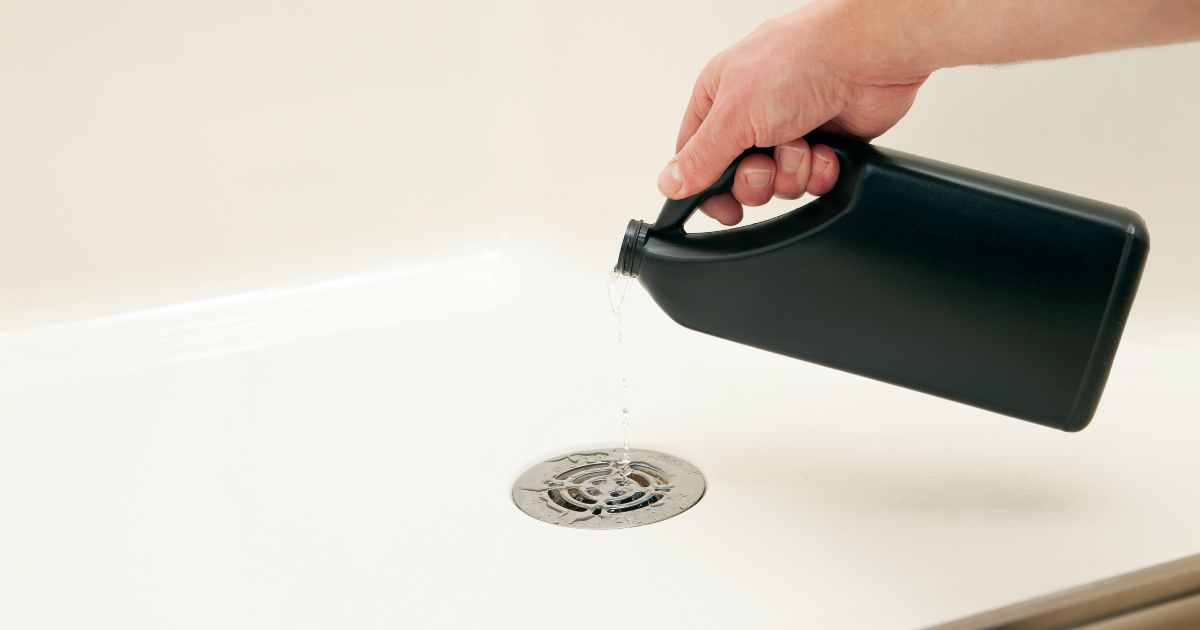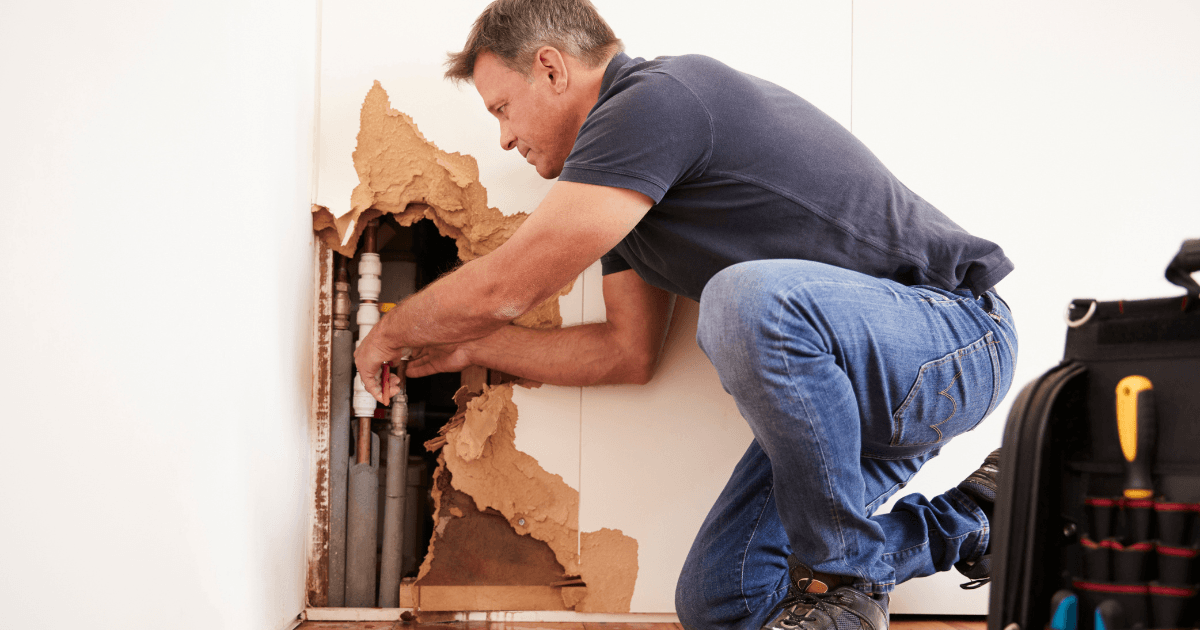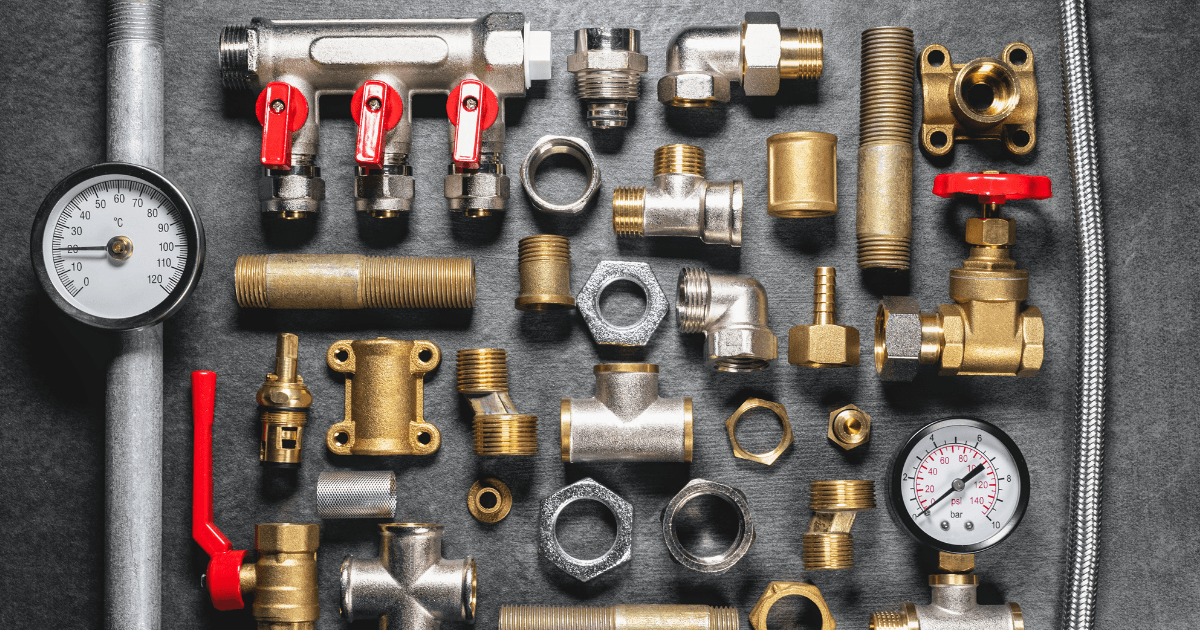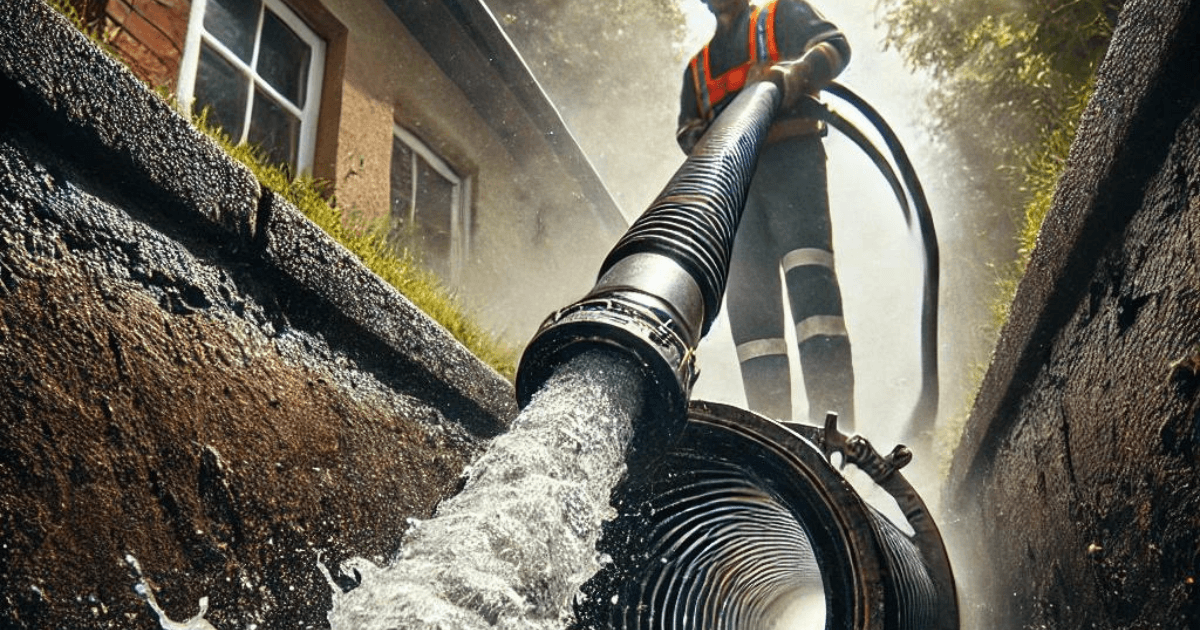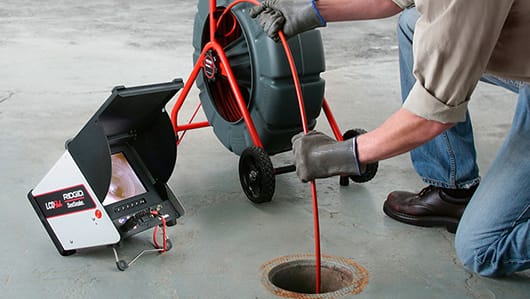Clogged drains are one of the most common household plumbing issues. Whether it’s hair, soap scum, grease, or food particles, blockages can disrupt daily life and lead to more serious plumbing problems. When a drain is slow or backed up, homeowners often face a decision: Should they grab a chemical drain cleaner from the store, or should they call in a professional plumber? On the surface, chemical drain cleaners may seem like an easy, cost-effective fix, but at their core, they come with risks that many homeowners overlook. This article will explore the key differences between chemical drain cleaners and professional cleaning services, dissect conventional assumptions, and provide a forward-thinking perspective on what works best for your home.
Understanding the Fundamentals: What Are Chemical Drain Cleaners?
Chemical drain cleaners are readily available products designed to dissolve blockages by using powerful chemicals. They come in liquid, gel, or powder forms, and their goal is simple: break down the material causing the clog. The most common types of chemical drain cleaners include:
- Caustic Cleaners: These contain chemicals like sodium hydroxide or potassium hydroxide, which create heat to dissolve grease, soap scum, and hair.
- Acidic Cleaners: Typically made from sulfuric acid, these are powerful enough to dissolve tougher blockages like tree roots or harder buildups.
- Oxidizing Cleaners: Using chemicals like bleach or peroxides, these cleaners work by adding oxygen to the clogging material, breaking it down into smaller particles.
At first glance, these products seem like a convenient, quick solution. But this conventional view misses deeper considerations. Most homeowners believe that if the water starts flowing again, the problem is solved. In reality, chemical drain cleaners may only partially address the issue, leaving behind debris or causing unseen damage to the pipes.
The Hidden Costs of Convenience: Risks of Chemical Drain Cleaners
The allure of chemical drain cleaners lies in their simplicity. Pour the solution down the drain, wait a few minutes, and (hopefully) watch the clog disappear. But the science behind these products reveals significant downsides, which often go unnoticed.
1. Damage to Pipes
One of the biggest concerns with chemical drain cleaners is the potential damage they can cause to your plumbing system. Most chemical cleaners work by generating heat to break down blockages, but this heat can also erode pipes, especially older metal or PVC pipes. Over time, this corrosion weakens the structure of the pipes, making them more prone to leaks and cracks.
Imagine your plumbing system as the arteries of your home. Chemical cleaners may seem like a quick fix to clear out blockages, but the “heat” they generate is akin to applying a corrosive agent directly to those arteries. While the blockage may clear temporarily, the long-term effects weaken the system’s integrity, eventually leading to more expensive repairs down the line.
2. Environmental and Health Hazards
Most chemical drain cleaners contain highly toxic ingredients that can pose significant health risks if inhaled or ingested. The fumes released during the cleaning process can be harmful, especially in poorly ventilated areas like bathrooms or kitchens. These products are also dangerous if they come into contact with skin, potentially causing burns or irritation.
From an environmental standpoint, the impact is even more concerning. After the chemicals do their job, they are flushed down the pipes and into the sewage system, eventually making their way to water treatment plants or, in some cases, directly into the environment. The chemicals used in these cleaners are not easily biodegradable and can pollute local water supplies, harming wildlife and ecosystems.
3. Ineffectiveness Against Larger Issues
While chemical cleaners can dissolve smaller blockages like hair or soap scum, they are ineffective against more significant problems, such as tree roots, deep grease clogs, or larger debris. In these cases, chemical solutions may only provide temporary relief, and the underlying problem persists, leading to recurrent clogs. This is where the misconception that chemical cleaners are a one-size-fits-all solution begins to fall apart.
The Case for Professional Drain Cleaning: Comprehensive and Long-Lasting
Professional drain cleaning services, by contrast, offer a more precise, thorough, and long-term solution. Professionals use specialized tools and advanced technology to clear drains completely, addressing the root cause of the problem rather than applying a temporary fix. Let’s dive deeper into why professional services surpass chemical drain cleaners.
1. Advanced Tools and Techniques
Plumbers come equipped with tools that go far beyond what chemical cleaners can achieve. Two common methods used by professionals are hydro-jetting and drain snakes.
- Hydro-Jetting: This technique involves sending a high-pressure stream of water through the pipes, effectively scouring the walls of the pipe and removing any built-up debris or blockages. Because hydro-jetting uses only water, it’s environmentally friendly and doesn’t damage the pipes, regardless of their material.
- Drain Snakes or Augers: These devices mechanically break apart clogs by reaching deep into the plumbing system. They can handle a wider range of blockages, including tree roots and other large obstructions that chemical cleaners can’t touch.
2. Comprehensive Inspections
One of the key advantages of professional cleaning is the ability to use camera inspections. Before starting the cleaning process, many professionals will use a small camera to inspect the pipes, allowing them to accurately identify the location and nature of the clog. This level of precision ensures that the right cleaning method is used and that no underlying damage, such as cracks or corrosion, is missed. Chemical cleaners, by contrast, are applied blindly and can miss deeper issues.
3. Preventive Maintenance and Long-Term Health of Plumbing
Professional cleaning services don’t just fix the current problem—they help prevent future issues. By thoroughly clearing out the pipes, professionals remove debris that can lead to future blockages. This preventive approach ensures that your plumbing system remains healthy for longer, reducing the frequency of clogs and extending the life of your pipes.
In contrast, repeated use of chemical drain cleaners not only damages pipes but also fails to address the root causes of clogs, leading to more frequent blockages over time.
Cost Comparison: Chemical vs. Professional Cleaning
Many homeowners are drawn to chemical drain cleaners because of their relatively low upfront cost—typically ranging from $5 to $20 per bottle. However, this short-term cost savings comes at a price. The long-term costs of using chemical cleaners, including potential pipe damage, increased frequency of clogs, and the need for eventual professional intervention, can add up quickly.
By comparison, professional drain cleaning services can range from $150 to $400, depending on the severity of the blockage and the method used. While this may seem more expensive upfront, the long-term benefits far outweigh the initial cost. Professional cleaning reduces the risk of future clogs, minimizes the likelihood of pipe damage, and ensures the overall health of your plumbing system.
Health and Environmental Considerations
One of the most critical aspects of this discussion is the impact on health and the environment. Chemical drain cleaners are loaded with toxic substances that can release harmful fumes, which are dangerous to inhale, especially in enclosed spaces. Accidental spills or splashes can cause skin burns and eye irritation, posing risks to children and pets.
Environmentally, the toxic chemicals from these cleaners often end up in water systems, contributing to pollution and harming aquatic life. As awareness around sustainability grows, many homeowners are seeking greener solutions for their home maintenance needs. Professional drain cleaning, especially using methods like hydro-jetting, provides an eco-friendly alternative that is just as effective without the harmful side effects.
Real-World Applications: When to Use Chemicals and When to Call a Professional
So, when is it appropriate to use chemical drain cleaners, and when should you call in a professional?
- Minor Clogs: If you’re dealing with a minor clog caused by food particles or hair, a one-time use of a chemical cleaner may offer a quick fix. However, this should be used sparingly and as a last resort.
- Recurring Clogs or Slow Drainage: If you find yourself dealing with frequent clogs, slow drainage, or gurgling sounds in your pipes, it’s time to call a professional. These are signs that there may be a deeper problem that a chemical cleaner simply can’t address.
- Older Plumbing Systems: Homes with older plumbing systems should avoid chemical cleaners altogether, as they are more susceptible to corrosion and damage. A professional plumber can assess the condition of your pipes and recommend the best cleaning method without causing additional harm.
FAQ: Chemical Drain Cleaners vs. Professional Cleaning
1. Are chemical drain cleaners safe for all types of pipes?
- No, chemical drain cleaners are not safe for all types of pipes. While they can be effective in clearing minor clogs, the heat and corrosive nature of these chemicals can damage certain pipe materials, particularly older metal pipes or PVC pipes. Repeated use of chemical cleaners can weaken pipes, leading to leaks or cracks over time.
2. Can I use chemical drain cleaners if I have a septic system?
- It is generally not recommended to use chemical drain cleaners with a septic system. The chemicals can disrupt the balance of bacteria that help break down waste in the septic tank, potentially leading to more serious issues. Additionally, the chemicals can seep into the ground, harming the environment.
3. How often should I get my drains professionally cleaned?
- For most homes, it’s recommended to have your drains professionally cleaned once every 1-2 years as part of preventive maintenance. However, if you experience frequent clogs or slow drainage, you may need more frequent cleanings. Homes with older plumbing systems might benefit from more regular inspections and cleanings.
4. Are there any eco-friendly alternatives to chemical drain cleaners?
- Yes, there are several eco-friendly alternatives to chemical drain cleaners. DIY options like baking soda and vinegar can be used to clear minor clogs, and they are much safer for the environment and your pipes. For a professional solution, hydro-jetting is an eco-friendly method that uses high-pressure water to clear blockages without the use of harmful chemicals.
5. How do professional plumbers clean drains without damaging the pipes?
- Professional plumbers use specialized tools like drain snakes, augers, and hydro-jetting equipment to clear clogs without damaging pipes. Unlike chemical cleaners, these tools physically remove the blockage and thoroughly clean the pipes. Plumbers often conduct a camera inspection before and after cleaning to ensure the pipes are intact and free of blockages.
6. Are professional drain cleaning services worth the cost?
- While professional drain cleaning may cost more upfront than chemical cleaners, it is worth the investment in the long run. Professional services provide a more thorough clean, prevent recurring issues, and protect your plumbing system from damage caused by chemicals. By maintaining your plumbing system, you avoid costly repairs and extend the life of your pipes.
7. Can chemical drain cleaners cause health problems?
- Yes, chemical drain cleaners can pose health risks. The fumes they release can cause respiratory issues, especially in poorly ventilated spaces. Additionally, direct contact with the skin can result in burns, irritation, or chemical burns. If used improperly, these products can also cause serious harm to children or pets.
Conclusion: A Smarter, Safer Approach to Drain Cleaning
When it comes to maintaining the health and functionality of your home’s plumbing, there’s no one-size-fits-all solution. While chemical drain cleaners may offer a temporary fix, they come with significant risks to your pipes, health, and the environment. Professional drain cleaning services, on the other hand, provide a comprehensive, safe, and long-lasting solution that addresses the root cause of the problem.
For homeowners who value the longevity of their plumbing system and are conscious of the environmental and health impacts of chemical cleaners, the choice is clear: professional cleaning is the smarter investment. Not only does it provide a more thorough solution, but it also protects your home, your health, and the environment in the long run.
So, before you reach for that bottle of drain cleaner, consider the bigger picture. A professional cleaning may cost more upfront, but the peace of mind and long-term savings make it well worth the investment.

